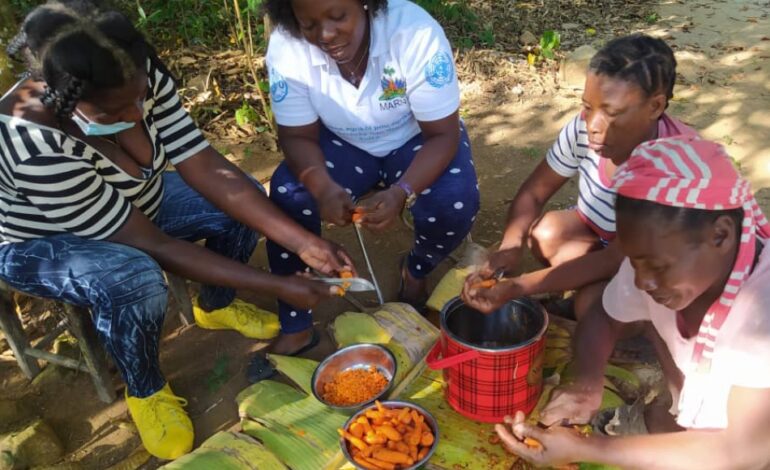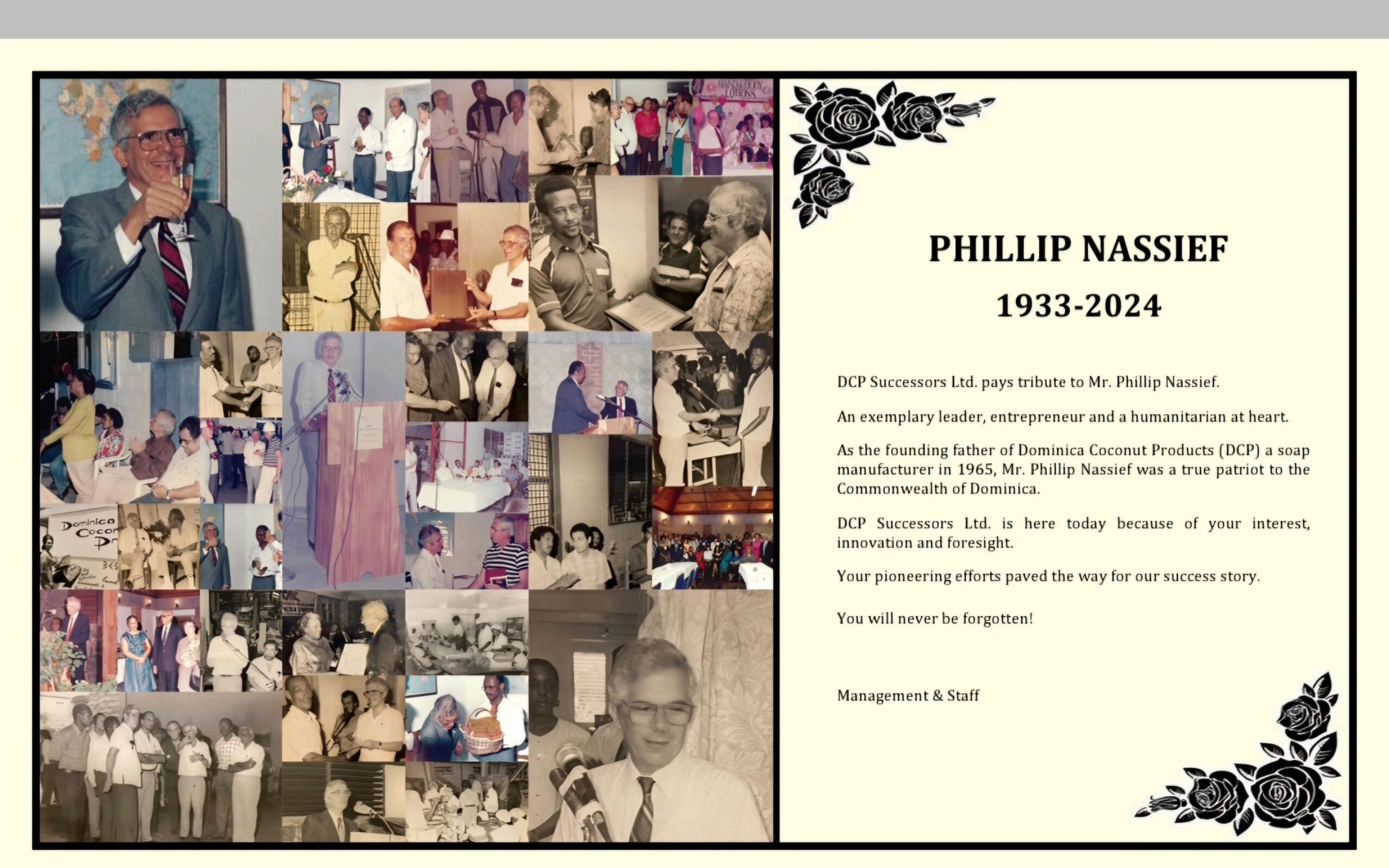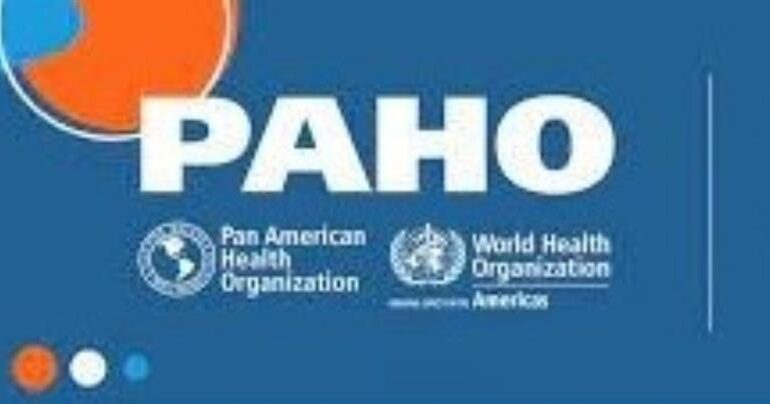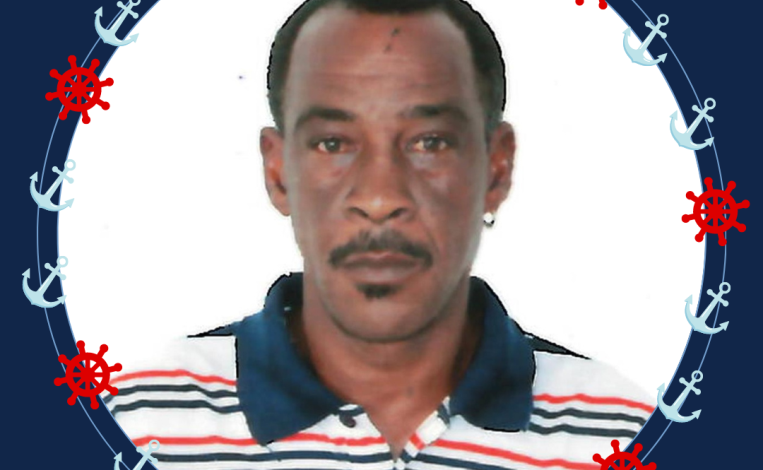
Village savings and loan associations help Haitian women build their businesses and futures
Port-au-Prince, Haiti – The way Yolande Saint Louis describes herself is someone who likes to help others, offering her services to whomever is in need of them. When other women ask how she manages, she says she loves her community of Mapou in southeast Haiti, and she doesn’t want to live elsewhere. That’s despite the fact that so many have abandoned the area to settle elsewhere in Haiti or abroad.
From these simple facts, it is not hard to see why the 42-year-old single mother was one of the 1 200 women to participate in an initiative of the Food and Agriculture Organization of the United Nations (FAO) — “Support to the Haitian government for the socio-economic empowerment of rural women”— implemented in the communes of Thiotte and Belle-Anse, which includes Mapou.
In rural Mapou, agriculture and livestock are the main sources of income for its inhabitants, but due to the lack of road infrastructure and other basic facilities, the community faces significant challenges in ensuring their food and nutrition security. In addition, one third of farms are headed by women. However, women’s engagement in decision-making and leadership spheres is still low.
The FAO project works to empower rural women by supporting their economic activities and helping them access resources. In concrete terms that has meant supporting the creation of village savings and loan associations (VSLAs), which help women invest in their own agri-businesses and entrepreneurial activities.
Yolande hosts the meetings of her village association at her own house. In her community, there are two groups of borrowers with 30 people each. At the moment, each group has about USD 2 700 (416 000 HTG) in cash and, in each group, there are 18 people who have loans. These might be used for anything from children’s school fees to starting businesses or putting food on the table during holiday periods.
According to Yolande, “This is the first time in the community that we have this type of credit group. Before that we were forced to take loans that were difficult to repay.”
In total, the initiative created 16 savings and credit groups for women, for which FAO also provided an expert to support the groups and equipment such as calculators, savings books and safes to keep the associations’ cash.
Yolande has trodden a path different from many other village women. She manages a bakery that supplies customers well beyond the boundaries of Mapou in addition to overseeing her farm.
She is responsible for about 20 employees who work on her land and take care of livestock for the benefit of a salary. She has the income she needs to support herself and her family.
But she too has encountered significant difficulties due to the current crisis of violence in the country. She used to travel to the capital, Port-au-Prince, to get supplies, but now prefers to give money to drivers to buy what she needs because, she says, “I was assaulted several times while going to buy goods.”
A role model for many women in her community and beyond, she still is very attached to her roots in Mapou and would rather live there than anywhere else.
Yolande is also the coordinator of the women’s association “Organization of Women Advisors, or Oganizasyon Fanm Konsekan Mapou in Creole, which owns a corn mill that was provided by the FAO project and serves the locality. Before the community received it, local people, especially women, would travel to a mill located near the border with the Dominican Republic to process maize, but sometimes they would return empty-handed due to delays or breakdowns along the route or overcrowding at the mill itself. The local corn mill has solved this issue.
It’s clear that the initiative “has played an important role in reducing the inequalities that women face and putting them in a stronger position to contribute to the development of their communities,” says FAO Representative in Haiti, Jose Luis Fernandez.
The needs remain significant, yet women investing in themselves is a small but significant step to transforming their own lives, that of their families and of society in general.










